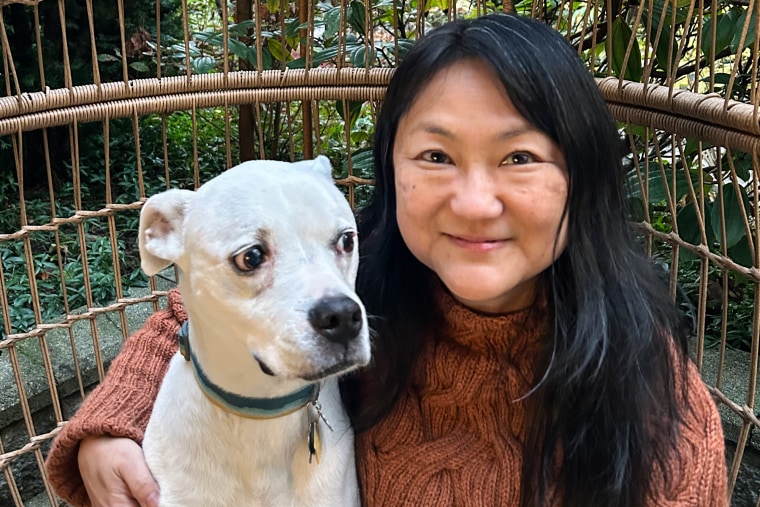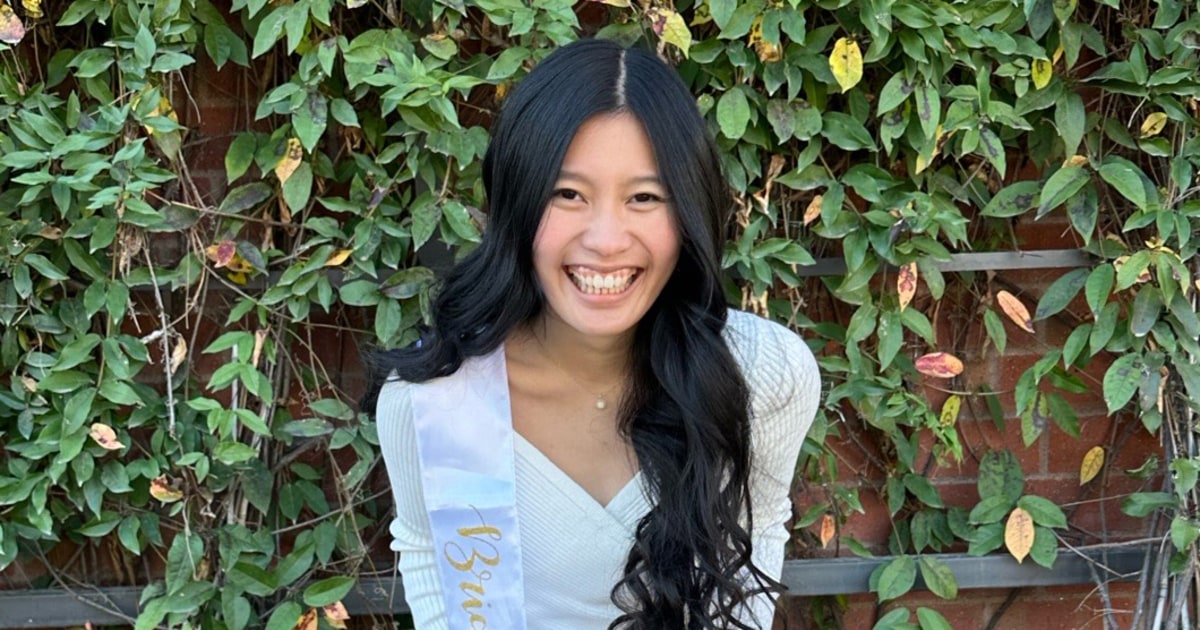Cosette Eisenhauer-Epp, a Chinese transracial adoptee with white parents, said she remembers a salient moment after the March 2022 Atlanta-area spa shootings.
“The people he shot look like me, but he’s the same ethnicity as my parents, so where do I go from that?” said Eisenhauer-Epp, a 23-year-old master’s student at the University of Texas at Arlington.
For Eisenhauer-Epp, the shootings were just another reminder of how complicated it was navigating her identity as an adoptee.
Many adoptees say they have recently been pushing back against a certain narrative they feel is foisted upon them. Amid recent investigations that exposed systemic adoption fraud by the Chinese and South Korean governments, some adoptees have capitalized on the global reckoning with adoption to combat messages from the media and well-intentioned commentators that they should be “grateful.”
Many adoptees also say that with the overturning of Roe v. Wade and conservative-backed push to present adoption as an alternative to abortion, the idea that adoptees were “rescued” and should be thankful is woven into America’s political fabric.
Eisenhauer-Epp is one of the co-founders of Sisters of China, an adoptee-led organization that provides space for female-identifying Chinese adoptees affected by China’s one-child policy to share their stories and struggles. She recently created a TikTok for the organization that addressed how harmful it is to ask adoptees if they feel grateful.
The adoptee community responded to her video, commenting “Preach,” “literally” and “so truee” and that they identified with the sentiment.
By sharing their experiences online, adoptees and adoptee advocates have pushed for a new narrative that decenters adoptive parents and amplifies adoptee voices.
“I can’t think of any other groups of trauma survivors who are told to be grateful for that traumatic experience, and especially not with such cultural insistence that adoptees experience,” said Adoptee Mentoring Society program coordinator amanda paul, whose name is not capitalized.
This narrative is part of the adoption industrial complex, paul said, a system that “produces” adoptees to meet the demands of governments and adoption agencies more interested in finding “potential buyers” than caring about children.

Adoptees have long pushed back against the narrative that they should be grateful, but now their message has greater visibility because of social media and the growth in adoptee-led organizations.
Eisenhauer-Epp, who was adopted from Zhanjiang in China’s Guangdong province at 14 months old, said this narrative is harmful.
“Just because I was adopted and had [a] more positive experience with adoption, it doesn’t diminish the negative emotions I did have, the struggles that adoptees have, the feeling of abandonment and random abandonment triggers,” she said.
Since China opened its doors to international adoption in 1992, more than 160,000 children have been sent abroad, according to China’s Children International, an organization that connects Chinese adoptees with each other. The one-child policy was implemented in 1980 to curb China’s rapid population growth.
Most of the infants abandoned under the policy were girls, due to many Chinese families’ preference for a son over a daughter. Many adoptees are still reeling after the Chinese government announced on Sept. 5, 2024, that it would suspend all intercountry adoptions.
“It just brings so much unknown with Chinese adoptees. We don’t know what the next is going to be, so we don’t know if it’s going to be harder for us to go back to China — if it’s going to be harder for us to start searching for birth parents,” Eisenhauer-Epp said. “It truly just adds to the complexity of being an adoptee. I think the complexity of being an adoptee never ends.”
At a press conference in early September, China’s Foreign Ministry spokesperson Mao Ning said exceptions will be made for adopting children or stepchildren of blood relatives in China, up to the third degree of kinship.
Similarly, news about South Korea’s adoption system has shaken many Korean adoptees.
What initially manifested as a deep prejudice against biracial children in a nation ravaged by the Korean War soon became a booming business. Korean adoption agencies charged anywhere between $4,000 and $6,000 per child, according to an Associated Press investigation.
In a frenzy to export as many children as possible, Korean officials often cut corners, pulling children off the street or telling parents their newborns were dead, only to ship them off to orphanages. Children were assigned identities that belonged to someone else, leading to reunions with supposed parents they were unrelated to, the AP found.
But for some adoptees, like paul, the investigations exposed nothing new and were a reminder of how adoptees’ stories are only viewed as important when made “mainstream.”
“I know that adoptees have been sharing their own stories and archiving these experiences and processes for a really long time, and in the Korean adoptee communities specifically for generations,” paul said.
Paul, who uses they/them pronouns, was born in Korea in 1990 and raised in Chicago by two white parents. Their parents spent no time with other people of color, and that damaged paul’s ability to form a healthy understanding of their identities, they said.
For them, the narrative that adoptees should be grateful is “more of a culturally pervasive expectation than an option” for adoptees. “We should stop telling others how to feel about their own experience because that is really dehumanizing,” paul said.
Dr. JaeRan Kim, a Korean transracial adoptee, adoptee scholar and the author of the Harlow’s Monkey blog, said that while some adoptees are certainly grateful, pressuring every adoptee to feel that way diminishes the fact that everyone has their own experience with adoption.
“At the heart of adoption, for anybody to be adopted, they had to have lost the first family,” she said. “To tell somebody they should be grateful for the loss that they have experienced is really insensitive, and nobody should be told that they should be grateful for having experienced a certain loss, especially one as profound as their family.”

Leave a Reply